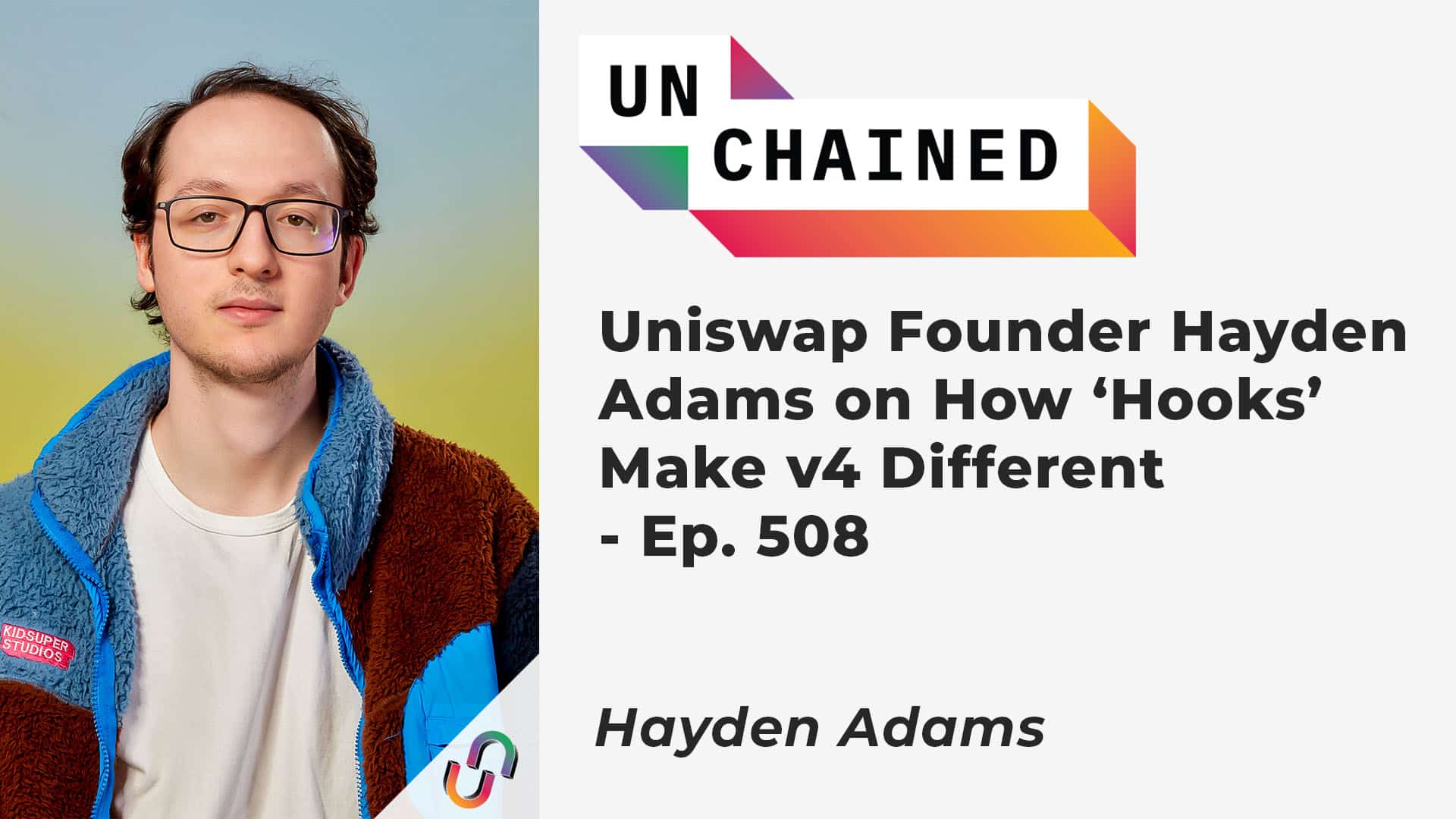The announcement of the upcoming launch of Uniswap v4 sparked fresh versions of old debates. Is it OK for DeFi’s leading DEX to not be fully open source at launch? What counts as composability and what counts as plagiarism? Is Uniswap’s dominance a threat to decentralization? Founder Hayden Adams joins the show to respond to the critics and explain the novel features of Uniswap v4.
Listen to the episode on Apple Podcasts, Spotify, Overcast, Podcast Addict, Pocket Casts, Stitcher, Castbox, Google Podcasts, TuneIn, Amazon Music, or on your favorite podcast platform.
Show highlights:
- how Uniswap was born and how it has evolved since 2018
- how the SushiSwap vampire attack was a win for Uniswap
- whether the new version of Uniswap brings it closer to the true ethos of Ethereum
- what the problems were with the previous fee model and how the new v4 approaches fee tiers
- an explanation of “hooks,” the most important feature of the new code
- what Hayden thinks the most common uses of hooks will be
- how v4’s time-weighted average market maker (TWAMM) feature works
- whether Hayden is worried that hooks will be engineered to do rug pulls
- what Hayden thinks about v4’s new “singleton” approach
- how EIP-1153 (if implemented) will make Uniswap v4 more efficient
- when Hayden estimates that the v4 code will be deployed
- why Uniswap decided to go with a four-year business license
- Hayden’s response to allegations that Uniswap plagiarized Crocswap for its v4 code
- whether there’s a risk that U.S. authorities blacklist certain transactions on v4
- whether it is possible to add KYC and AML compliance into v4 pools
- why Hayden is sad about the U.S. approach to regulating crypto
- why he believes that Uniswap will not become a centralizing force
Thank you to our sponsors!
Guest:
- Hayden Adams, founder of Uniswap
Links
- Unchained:
- Uniswap: Our Vision for Uniswap v4
- EIP-1153: Transient storage opcodes
- v4-core/LICENSE at main · Uniswap/v4-core · GitHub
- Frax Finance’s Sam Kazemian tweet
- TWAMM – Paradigm
Read the episode transcript here




